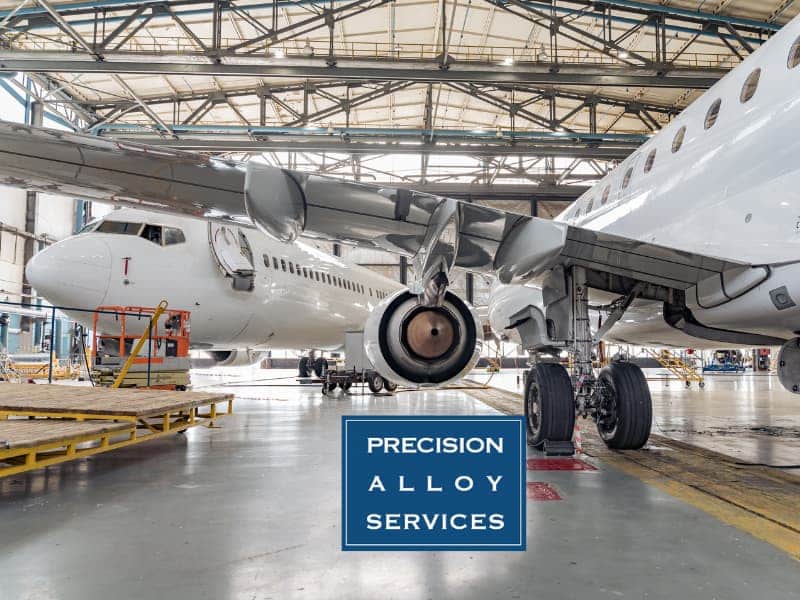Stainless Alloys in Medical Application
In the medical industry, the demand for high-performance materials is critical. Stainless alloys play a vital role in various medical applications due to their strength, corrosion resistance, and biocompatibility. At Precision Alloy Services, we specialize in providing a range of stainless alloys tailored for the medical sector. This blog post will explore the significance of stainless alloys in medical applications, highlighting their benefits and specific uses.
Understanding Stainless Alloys
Stainless Alloys in Medical Application
Stainless alloys are a group of iron-based alloys that contain at least 10.5% chromium. This composition gives them their characteristic resistance to corrosion and staining. In medical applications, the most commonly used stainless alloys include:
- Custom Alloy 455: Known for its excellent corrosion resistance and mechanical properties, making it ideal for surgical instruments and implants.
- Custom Alloy 465: Offers high strength and resistance to stress corrosion cracking, often used in demanding medical environments.
Custom Alloy 455
Custom Alloy 465
Benefits of Stainless Alloys in Medical Applications
Stainless Alloys in Medical Application
- Corrosion Resistance
Stainless alloys exhibit exceptional resistance to corrosion, which is crucial in medical environments where exposure to bodily fluids and sterilization processes is common. This property ensures the longevity and reliability of medical devices. - Biocompatibility
Many stainless alloys are biocompatible, meaning they do not induce an adverse reaction when implanted in the body. This makes them suitable for surgical implants, prosthetics, and other devices that interact directly with biological tissues. - Strength and Durability
Stainless alloys possess high tensile strength, allowing them to withstand the mechanical stresses encountered during use. This durability is essential for surgical instruments that require precision and reliability. - Ease of Fabrication
Stainless alloys can be easily fabricated into various shapes and sizes, making them versatile for different medical applications. They can be formed into complex geometries required for specific devices. - Sterilization Compatibility
The ability to withstand repeated sterilization processes without degrading is critical for medical devices. Stainless alloys maintain their integrity even after numerous sterilization cycles.
Aerospace Alloys
Key Applications of Stainless Alloys in Medicine
Stainless Alloys in Medical Application
1. Surgical Instruments
Stainless alloys are widely used in the production of surgical instruments such as scalpels, forceps, and scissors. The combination of sharpness, strength, and corrosion resistance makes them ideal for surgical applications.
2. Implants
Custom alloys like 455 and 465 are often used for medical implants, including orthopedic and dental implants. Their biocompatibility and mechanical properties ensure they can function effectively within the body.
3. Catheters
Medical-grade stainless alloys are also used in catheters and other tubes. Their smooth surfaces reduce friction and enhance the ease of insertion, while their corrosion resistance ensures safety and reliability.
4. Prosthetics
In prosthetic devices, stainless alloys provide the necessary strength and durability to withstand daily use. Custom alloys can be tailored to meet specific requirements for different types of prosthetics.
5. Surgical Tools
High-quality stainless alloys are essential in creating surgical tools that require precision and durability. Tools made from these alloys are designed to perform effectively under various conditions.
Medical Alloys
Stainless Alloys in Medical Application
The Role of Precision Alloy Services
Stainless Alloys in Medical Application
At Precision Alloy Services, we pride ourselves on providing high-quality stainless alloys for the medical industry. Our ISO 9001:2015 and AS9100 Rev D certified quality management systems ensure that our products meet the highest standards. We offer a range of processing services, including bar sawing, water-jet cutting, and chamfering, to meet the specific needs of our clients.
Frequently Asked Questions (FAQ)
Stainless Alloys in Medical Application
1. What are the most common stainless alloys used in medical applications?
The most common stainless alloys include Custom Alloy 455 and Custom Alloy 465, known for their corrosion resistance and biocompatibility.
2. Why are stainless alloys preferred in medical devices?
Stainless alloys are preferred due to their strength, corrosion resistance, biocompatibility, and ability to withstand sterilization processes.
3. Can stainless alloys be used for implants?
Yes, stainless alloys are widely used for implants, including orthopedic and dental applications, due to their mechanical properties and compatibility with biological tissues.
4. How do you ensure the quality of your stainless alloys?
At Precision Alloy Services, we adhere to strict quality management systems certified to ISO 9001:2015 and AS9100 Rev D, ensuring our products meet industry standards.
5. What processing services do you offer for stainless alloys?
We offer various processing services, including bar sawing, water-jet cutting, and chamfering, to meet the specific needs of our clients.
Conclusion
Stainless Alloys in Medical Application
Stainless alloys play an indispensable role in the medical industry, providing the necessary properties for safety, reliability, and performance. At Precision Alloy Services, we are committed to supplying high-quality stainless alloys tailored to meet the needs of medical applications. If you’re looking for specialized alloys for your medical devices, contact us today at (419) 725-6642 or email [email protected].
- ASM International: Stainless Steel in the Medical Field
- ScienceDirect: Biocompatibility of Stainless Steel
- MDPI: Corrosion Resistance of Stainless Steel
- Wiley Online Library: Properties of Stainless Alloys
- NIH: Stainless Steel in Medical Applications
- Springer: Stainless Steel for Medical Devices
- Materials Today: Advances in Medical Alloys
- TWI: Stainless Steel for Medical Applications
- PubMed: Medical Applications of Stainless Steel
- The Royal Society of Chemistry: Stainless Steel Alloys
By understanding the significance of stainless alloys in medical applications, professionals can make informed decisions for their projects, ensuring safety and effectiveness in medical devices.
Stainless Alloys in Medical Application

